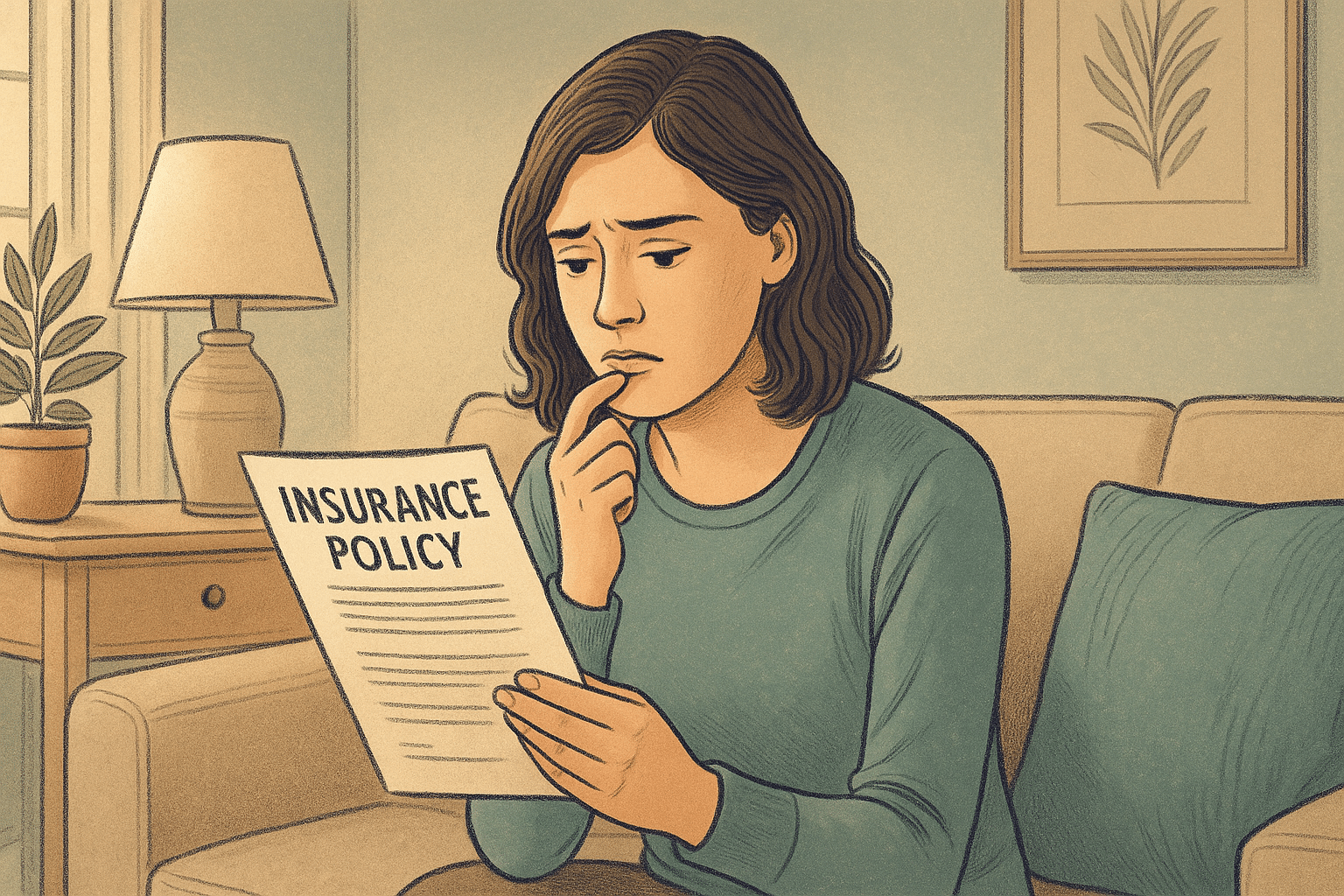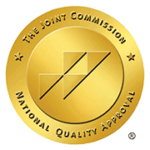
Key Takeaways
- Depression is classified as a pre-existing condition by insurance companies, but health insurers cannot deny coverage or charge more under the Affordable Care Act.
- Life insurance companies can and do consider depression when determining eligibility and premium rates, often resulting in higher costs.
- The severity, treatment history, and management of your depression significantly impact life insurance underwriting decisions.
- Mental health parity laws require health insurance plans to provide equivalent coverage for mental health and physical health conditions.
- At Mission Connection Healthcare, we help clients through the insurance maze with personalized strategies to secure appropriate coverage, even when mental health challenges are a factor.
Depression & Pre-Existing Conditions: The Facts
Yes, depression is considered a pre-existing condition in the insurance world. A pre-existing condition is any health issue that existed before a new insurance policy’s start date.
Depression, whether recently diagnosed or a long-term condition, falls into this category for both health and life insurance purposes. However, how this classification affects you depends on the type of insurance you’re seeking.
How Insurance Companies Define Depression
Insurance companies typically categorize depression based on severity, treatment history, and management. For underwriting purposes, they may classify depression as mild, moderate, or severe.
Mild depression with minimal medication and no hospitalization history typically has the least impact on insurance decisions. Moderate depression usually involves ongoing medication and possibly therapy, while severe depression may include hospitalization history, multiple medication adjustments, or disability claims.
Different insurance companies have different underwriting guidelines for depression. Some are more lenient than others, which is why working with an experienced insurance advisor who knows which companies are most accommodating for specific situations can be invaluable.
Legal Status Under Current Health Laws
Under the Affordable Care Act, health insurance companies cannot deny coverage, charge higher premiums, or impose waiting periods based on pre-existing conditions, including depression. This protection applies to all ACA-compliant plans, whether purchased on or off the marketplace.
Additionally, the Mental Health Parity and Addiction Equity Act (MHPAEA) requires health insurers to provide mental health benefits on par with medical and surgical benefits if they offer mental health coverage. These legal protections represent significant progress for individuals with depression and other mental health conditions.
However, it’s worth noting that certain health plans grandfathered in before the ACA may have different rules. Additionally, short-term health insurance plans, which aren’t required to comply with ACA regulations, can still deny coverage or charge more based on pre-existing conditions.
| Mission Connection: Outpatient Mental Health Support Mission Connection offers flexible outpatient care for adults needing more than weekly therapy. Our in-person and telehealth programs include individual, group, and experiential therapy, along with psychiatric care and medication management. We treat anxiety, depression, trauma, and bipolar disorder using evidence-based approaches like CBT, DBT, mindfulness, and trauma-focused therapies. Designed to fit into daily life, our services provide consistent support without requiring residential care. Start your recovery journey with Mission Connection today! |
Health Insurance & Depression Coverage

ACA Protections for Mental Health Conditions
The Affordable Care Act fundamentally changed how depression is handled in health insurance. Under the ACA, all marketplace and most employer plans must include coverage for mental health and substance use disorder services.
This protection ensures that insurance companies cannot exclude coverage for depression treatment simply because it’s a pre-existing condition. The law has created a safety net for millions of Americans living with depression who previously struggled to find affordable coverage.
Coverage Requirements for Depression Treatment
ACA-compliant health insurance plans must cover a range of depression treatments, though the specifics can vary by plan. Typically, covered services include outpatient therapy with psychiatrists, psychologists, or licensed counselors, inpatient mental health care for severe cases, and prescription medications for depression.
Many plans also cover preventive screenings for depression at no additional cost to you. While coverage is guaranteed, the extent of coverage and your out-of-pocket costs will depend on your specific plan.
Life Insurance When You Have Depression

Underwriting Process for Depression
When you apply for life insurance with a history of depression, the underwriting process will typically be more thorough. Insurers will request detailed medical records, including information about your diagnosis, treatment history, and current management plan. They may also require a statement from your treating physician about your prognosis and compliance with treatment.
Most life insurance applications include specific questions about mental health conditions, hospitalizations, and medication use. Be prepared to answer questions about when you were diagnosed, what treatments you’ve undergone, whether you’ve ever been hospitalized for depression, and if you’ve ever had suicidal thoughts or attempts. Some companies may also ask about any disability claims related to your depression or time missed from work.
The underwriter will use this information to classify your application according to their risk categories, which typically range from Preferred Plus (best rates) to Standard to Table-Rated (higher premiums) or, in some cases, Decline.
Factors Affecting Your Premium Rates
The recency and severity of your symptoms play a major role. Those with mild, well-controlled depression will generally receive better rates than those with recent, severe episodes.
Your treatment compliance also matters; consistently following your doctor’s recommendations demonstrates responsibility and risk management to insurers.
Additionally, your overall health profile, including any other medical conditions, will be considered alongside your depression. Having excellent physical health can sometimes offset some of the rating impact of depression.
Documentation You’ll Need
When applying for life insurance with depression, we recommend gathering comprehensive medical records from all healthcare providers who have treated your depression. This includes records from psychiatrists, therapists, and primary care physicians who have prescribed medication or provided treatment.
Be prepared to provide details about your medication history, including names, dosages, frequency, and any changes over time. Insurance companies view consistent medication use positively if it demonstrates effective management of your condition.
Additionally, a letter from your treating physician addressing your compliance with treatment, stability of your condition, and overall prognosis can significantly strengthen your application.
Getting Approved for Insurance with Depression
Health Insurance Application Tips
For health insurance, remember that ACA-compliant plans cannot deny you coverage or charge higher premiums based on depression. Your focus should be on finding a plan that provides adequate coverage for your specific treatment needs.

Pay special attention to the plan’s mental health benefits, including coverage for therapy sessions, psychiatric visits, and any specialized treatments you might need. Compare deductibles, copays, and coinsurance rates across plans, as these will significantly impact your overall costs.
Life Insurance Application Strategies
For life insurance applications, timing can be crucial. If your depression has been well-controlled for at least two years, you’re likely to receive more favorable rates. Consider applying when you’re in a period of stability rather than during or immediately after a depressive episode.
Working with an independent agent who specializes in high-risk cases can make a significant difference, as they’ll know which companies have more favorable underwriting guidelines for depression.
Be honest but strategic in how you present your condition. Focus on positive aspects of your management plan, such as consistent medication compliance, regular therapy attendance, and any lifestyle measures you take to manage your mental health. If your depression was situational (related to a specific life event) rather than chronic, make sure this is clearly documented, as insurers often view situational depression more favorably.
When to Disclose Your Condition
Transparency about your depression diagnosis is essential when applying for insurance. For health insurance under the ACA, you’re not required to disclose pre-existing conditions during the application process, as these cannot affect your eligibility or premiums. However, accurate information will help ensure you select a plan that adequately covers your treatment needs.
For life insurance, full disclosure is ethically required and legally necessary. Withholding information about your depression diagnosis or treatment history constitutes material misrepresentation and could result in your policy being canceled or a claim being denied after your death.
Most policies include a contestability period (typically two years) during which the insurer can investigate and potentially rescind coverage if they find undisclosed information.
Mission Connection’s Approach to Depression Care

At Mission Connection Healthcare, we recognize that going through insurance complexities shouldn’t prevent you from accessing the mental health care you deserve. We provide evidence-based treatments, including Cognitive Behavioral Therapy (CBT), Dialectical Behavior Therapy (DBT), and mindfulness-based techniques, while also helping you understand how to maximize your insurance benefits.
Our experienced team understands the unique challenges of securing coverage with a depression diagnosis. We guide clients through the insurance maze with personalized strategies, help prepare documentation for life insurance applications, and ensure treatment continuity regardless of coverage changes.
With our convenient telehealth services and specialized expertise in mental health insurance matters, we can help you recover and get the appropriate coverage protection.
Frequently Asked Questions (FAQ)
Can insurance companies deny me coverage for depression?
For health insurance, ACA-compliant plans cannot deny you coverage or charge higher premiums based on depression or any other pre-existing condition. This protection applies to all marketplace plans and most employer-sponsored plans.
However, certain types of health coverage that aren’t subject to ACA regulations, such as short-term health plans, can still deny coverage based on pre-existing conditions.
Does the severity of depression affect insurance rates?
Severity definitely matters for life insurance rates.
- Mild, well-controlled depression with minimal medication and no hospitalizations may qualify for standard or near-standard rates.
- Moderate depression typically results in moderate ratings and premium increases.
- Severe depression with complications like hospitalization or suicide attempts can lead to significant ratings or declines.
What if my depression is well-controlled with medication?
Well-controlled depression significantly improves your life insurance prospects. Insurers view consistent medication use and regular follow-up with providers very positively, as it demonstrates responsible management of your condition.
Many clients with well-controlled depression on stable medication regimens for 2+ years can qualify for standard rates with certain companies.
Are there waiting periods for depression treatment coverage?
ACA-compliant health insurance plans cannot impose waiting periods specifically for pre-existing conditions like depression. Once your coverage begins, mental health services should be available immediately, subject to the plan’s regular cost-sharing requirements.
Some employer plans have a general waiting period before any coverage begins (typically 30–90 days), but this applies to all conditions, not just depression.
How does Mission Connection Healthcare help with insurance challenges related to depression?
Mission Connection Healthcare provides dual expertise in both depression treatment and insurance processing.
We help clients understand their coverage options, prepare documentation for applications, identify insurers with favorable mental health underwriting, and ensure continuity of care.








